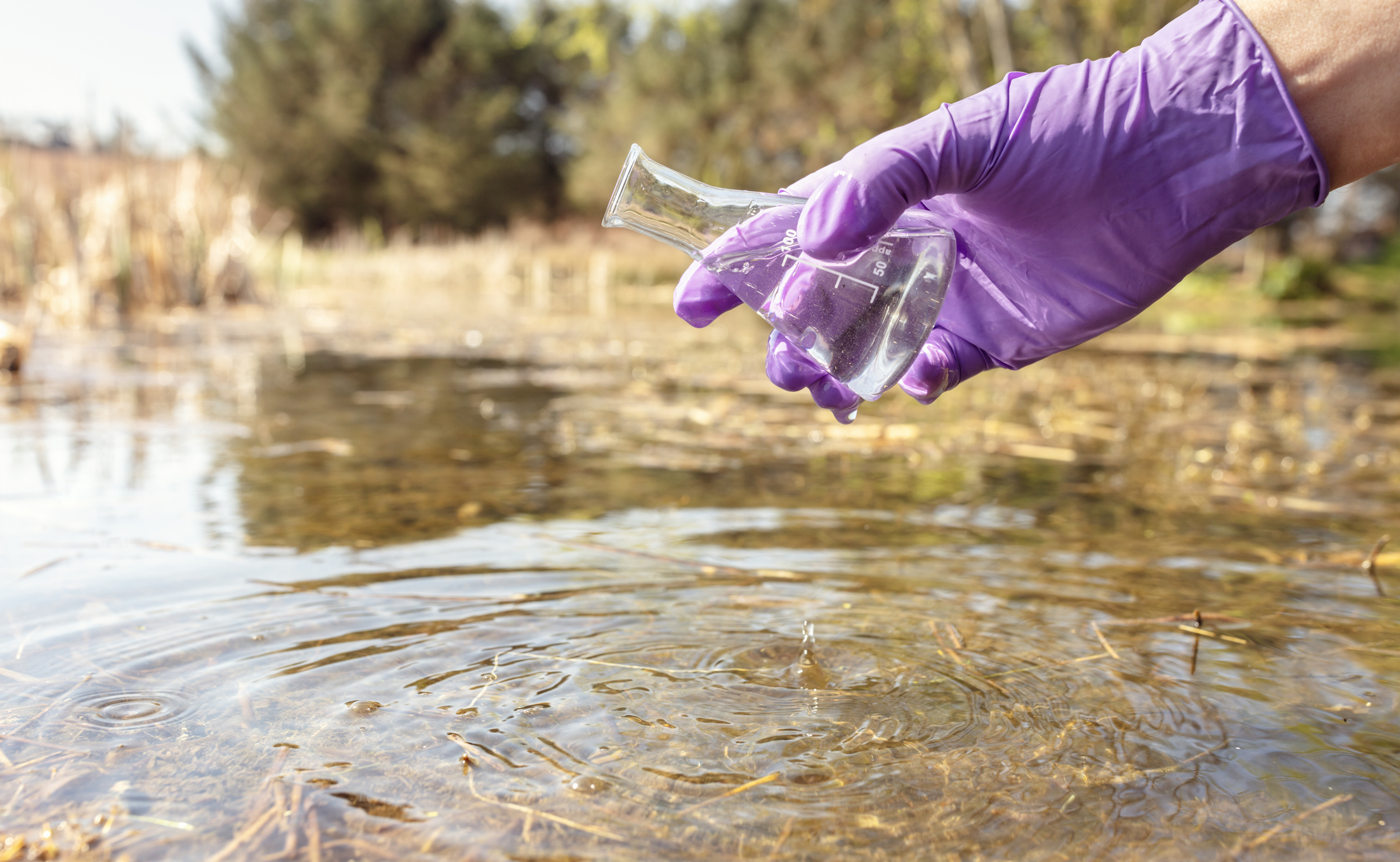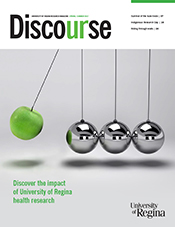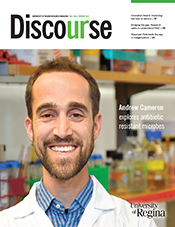Cameron Mang, Ali Khan, Paige Mackie, and Allan Johnson in the University of Regina gym .

It may start as a small tremor in an arm, but gradually movements slow and muscles begin to stiffen, making even simple tasks difficult and time consuming. Speech can become slurred, and writing hard or impossible. These are only a few of the symptoms of Parkinson’s disease, a progressive nervous system disorder.
A recently launched community-based program at the University of Regina, called Enrich, is helping adults living with Parkinson’s disease, as well as those with other chronic neurological conditions, such as strokes, acquired brain injuries, and spinal cord injuries.
“A concept exists in neuroscience called enriched environments, which is the idea that the brain is more plastic or malleable when exposed to environments full of opportunities for physical activity, social interaction, and cognitive stimulation,” says Cameron Mang, an assistant professor in the Faculty of Kinesiology and Health Studies.
The Enrich program provides clients with individualized exercises and task-oriented movement training activities that people perform in everyday life, such as reaching and grasping, handwriting, walking, and stepping up and down stairs.
“The aim of the program is to enrich clients’ life experiences through personalized rehabilitation training delivered in a group setting,” explains Mang. “Exercise and task-oriented movement training can help to increase brain plasticity and build new neural pathways. Over time, we hope to improve people’s quality of life and increase their ability to be more engaged in their communities.”
Mang is working with a team of undergraduate and graduate students. Each participant is paired with an undergraduate student who has volunteered their time to work with a client one-on-one, twice a week. The students help clients remember exercises, set weights, and generally be a buddy.
As part of the Enrich program, and with support from kinesiology professor Kim Dorsch, Paige Mackie is conducting neurological testing using a neurotracker to monitor symptom improvements. A neurotracker is a cognitive training device designed to challenge attention, spatial awareness, and memory.
“On the first day, the clients had the biggest smiles on their faces. They were excited to be there, and to be working on the same types of challenges as other participants,” notes Mackie, a kinesiology master’s student supervised by Mang. “They were hopeful – a powerful catalyst in rehab work where having a neurological condition can be quite debilitating.”
“This program, with Khan’s guidance, takes me through exercises that focus on my hand mobility, which are slowly returning my ability to write. I did not expect this,” says Johnson.
Mang says that one of the keys to the success of the research and the program has been making connections with people affected by neurological conditions and those who support them.
Barb Butler, the Regina chapter representative of the Saskatchewan Brain Injury Association, explains that her organization sees a strong need for and fit with Mang’s work, with five of her clients participating in Enrich. “While physical exercise is important, it is the social aspect we see having the greatest impact on our clients,” says Butler. “Brain injury survivors are often isolated and their world becomes small. Connecting and interacting with others enhances the rehab process.”
Ali Khan, a third-year kinesiology student, is one of the undergraduate volunteers. He says Enrich has taught him about the importance of the social aspect in rehabilitation. “The client does not have rehab done to them, but rather is in a relationship with the volunteer. It has reshaped my definition of rehab.”

Khan is working with Enrich client Allan Johnson, who lives with Parkinson’s disease and had lost his ability to write.
“This program, with Khan’s guidance, takes me through exercises that focus on my hand mobility, which are slowly returning my ability to write. I did not expect this,” says Johnson.
The promising changes he has seen since starting the program proves what the Enrich program assumes.
“If you provide an enriched environment, the brain will develop,” Johnson says.

Mang is now working to grow the Enrich program so more clients have the opportunity to benefit from this powerful work.
The Enrich program will accept new clients in January. To find out more, please call 306-585-4004.
This research is supported by an anonymous donation for research at the University focusing on brain health and quality of life.

















